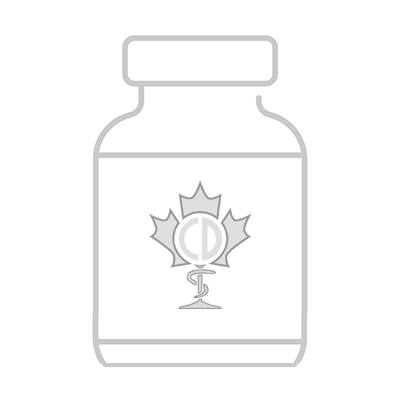What is Bicalutamide (Casodex) used for?
Casodex (bicalutamide) is primarily prescribed for the treatment of prostate cancer and hirsutism. It is an anti androgen and works in conjunction with another hormone to achieve its purpose. Bicalutamide, the active ingredient in Casodex, works by stopping the work of androgens present in the body. Bicalutamide is also used to treat other medical conditions.
Casodex contains the active ingredient bicalutamide. It belongs to the class of drugs antineoplastic antiandrogens. It is a prescription drug used in combination with a Luteinizing hormone releasing hormone (LHRH) analog to treat the symptoms of prostate cancer. It works by blocking the male hormone, testosterone. This can stop the growth and spread of cancer cells. Some common side effects of casodex are hot flashes, swelling of hands, ankles and feet, increased night-time urination, dizziness, nausea, breast pain, constipation and diarrhea. Casodex can affect blood sugar control when used in combination with LHRH analogs. It should also be used with caution in persons with existing liver problems. Talk to your doctor or pharmacist about medical advice on drug interactions and side effects. Casodex can cause birth defects. If your partner is of child bearing age, birth control methods should be used during treatment with casodex and for 130 days after stopping therapy. Inform your doctor of your current medications and herbal products to avoid an allergic reaction.

Bicalutamide Information
How to Use Bicalutamide?
Casodex is given in pill form, taken orally. It is usually taken once per day and is generally started at the same time you start LHRH therapy. It should be taken at the same time daily, either with or without food. You should urinate before you take Casodex.
What are the drug interactions with Bicalutamide?
Drug interactions can leave you at a higher risk of experiencing side effects or can change how your medications work. Some interactions must be avoided at all costs. Some drugs can be taken together even though they interact, but your doctor will have to take precautions to make it safe to do so.
The following drugs interact with Casodex:
Other medical problems
The presence of other medical problems may affect the use of this medicine. Make sure you tell your doctor if you have any other medical problems, especially:
- Diabetes or
- Liver disease (including hepatitis)
This is not a complete list of interactions with Casodex. You should give your doctor a complete list of medications that you are taking. This should include prescription and non-prescription drugs, herbal products, and vitamins that you take. If you have other questions about drug interactions you can talk to your doctor or call us at 1-844-416-4282 and ask to speak to a pharmacist for counseling.
What are the Side Effects of Bicalutamide?
Alongside the regular side effects of Casodex it can also cause some unwanted side effects. Though not all of these effects will occur, some require medical attention.
If the following side effects occur, talk to your doctor immediately:
More common
- Blood in the urine
- Blurred vision
- Body aches or pain
- Congestion
- Cough or hoarseness
- Cough producing mucus
- Difficult or labored breathing
- Dizziness
- Dryness or soreness of the throat
- Fever or chills
- Headache
- Lower back or side pain
- Nervousness
- Painful or difficult urination
- Pounding in the ears
- Rapid weight gain
- Runny nose
- Shortness of breath
- Slow or fast heartbeat
- Sweating
- Tender, swollen glands in the neck
- Tightness in the chest
- Tingling of the hands or feet
- Trouble with swallowing
- Unusual weight gain or loss
- Voice changes
- Wheezing
Less common
- Ankle, knee, or great toe joint pain
- Blindness
- Bloody nose
- Burning while urinating
- Chest tightness or heaviness
- Chills
- Confusion
- Decrease in frequency of urination
- Decrease in urine volume
- Decreased vision
- Difficulty in passing urine (dribbling)
- Difficulty with swallowing or eating
- Dilated neck veins
- Dry mouth
- Fainting
- Fast or irregular heartbeat
- Fever
- Irregular breathing
- Joint stiffness or swelling
- Lightheadedness
- Loss of appetite
- Lump or swelling in the abdomen
- Nausea
- No blood pressure or pulse
- Noisy breathing
- Pain in the neck
- Reddish patch or irritated area
- Sensation of pins and needles
- Shiny bump
- Stabbing pain
- Stomach discomfort
- Stopping of heart
- Tumor
- Unconsciousness
- Unexplained weight loss
- Unusual tiredness or weakness
- Wrinkled skin
- Yellow skin or eyes
Incidence not known
- Hives or welts
- Itching
- Redness of the skin
- Skin rash
There are some side effects that are minor and do not require medical attention. The following side effects will likely go away with time as your body adjusts to the medication.
If these side effects are bothersome, talk to your doctor:
More common
- Acid or sour stomach
- Belching
- Breast pain
- Constipation
- Difficulty with moving
- Dry skin
- Hair loss or thinning of the hair
- Heartburn
- Inability to have or keep an erection
- Indigestion
- Lack or loss of strength
- Muscle aching or cramping
- Muscle pain or weakness
- Nervousness
- Passing of gas
- Sleepiness or unusual drowsiness
- Stomach pain, fullness, or discomfort
There are other side effects that may occur that are unlisted here. If you experience any unlisted side effects, talk with your doctor immediately.
